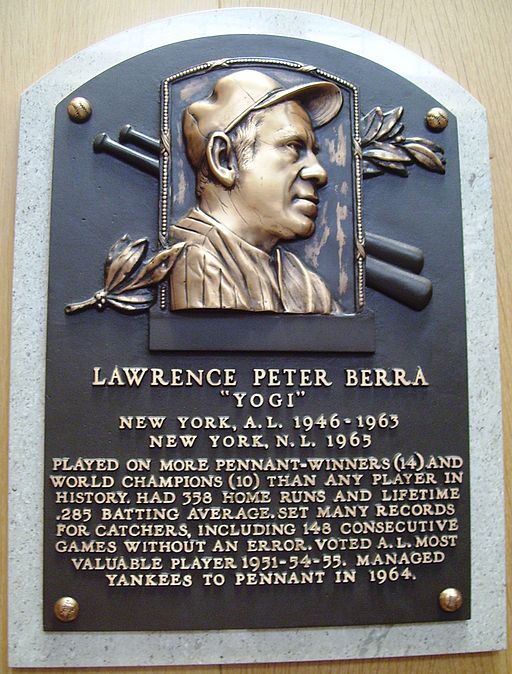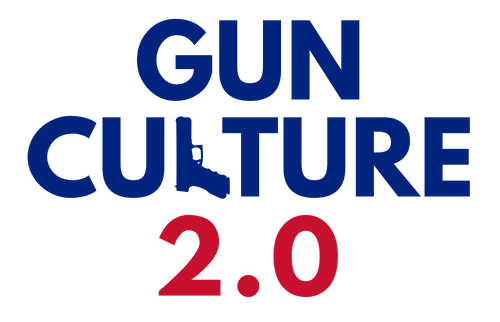I wrote previously about how two-time Pulitzer Prize-winning historian Richard Hofstadter’s 1970 essay, “America as a Gun Culture,” brought the term “gun culture” into more common use.
Re-reading the essay today is – to quote the great wordsmith Yogi Berra – like déjà vu all over again.
Had I not known the essay was published in 1970, I would have thought it was published last week.

Even writing in the wake of the Gun Control Act of 1968, Hofstadter begins by decrying America’s weak gun laws and noting that it is the only modern industrial nation to “agonize at length about its own disposition toward violence.” He continues:
“Many otherwise intelligent Americans cling with pathetic stubbornness to the notion that the people’s right to bear arms is the greatest protection of their individual rights and a firm safeguard of democracy—without being in the slightest perturbed by the fact that no other democracy in the world observes any such ‘right’ and that in some democracies in which citizens’ rights are rather better protected that in ours, such as England and the Scandinavian countries, our arms control policies would be considered laughable.”
Through the body of the paper he makes reference to facts and interpretations that are eerily familiar to anyone observing the culture wars over guns today.
- He noted an annual rate of gun homicides in Britain, with its more restrictive gun control policies, was 0.05 per 100,000 compared to 2.7 per 100,000 in the United States.
- He recognized “the extraordinarily efficient lobby of the National Rifle Association” during the debates over the Gun Control Act of 1968. Later he laments, “American legislators have been inordinately responsive to the tremendous lobby maintained by the National Rifle Association, in tandem with gunmakers and importers, military sympathizers, and far-right organizations.”
- He observed that the country “is afloat with weapons—perhaps as many as fifty million of them—in civilian hands.
- He compared the United States not only to Britain, but also to Australian, Canada, and Japan, in terms of gun homicide and suicide rates.
- He argues that the right to bear arms in the Second Amendment to the Constitution of the United States “was a collective, not an individual, right” (“Plainly” so, in his words).
- He criticizes “the idea that popular access to arms is an important counterpoise to tyranny,” scandalized that “the American historical mythology about the protective value of guns has survived the modern technological era in all the glory of its naïveté.”
- There is more in the essay than this, but nothing that could not be read today as a current assessment of the American gun situation from a liberal perspective.
As the French would say, “plus ça change, plus c’est la même chose.” The more things change, the more they stay the same.
Or, to cite the Tanakh,
What has been will be again,
what has been done will be done again;
there is nothing new under the sun.
Is there anything of which one can say,
“Look! This is something new”?
It was here already, long ago;
it was here before our time.
(Ecclesiastes 1:9-10)

Here you link to Hofstadter’s Wikipedia page, which says, in part:
> From 1934 to 1939 Hofstadter was active in left-wing groups, including a leadership role in the Young Communist League and (in 1938–39) a member of the Communist Party. Although disillusioned by Stalin’s deal with Hitler in 1939, and disgusted with the party’s anti-intellectualism, he remained an informal supporter into the early 1940s. Eric Foner notes that for some years Hofstadter considered himself a radical. He said that opposition to capitalism was a main reason he had joined the Communist Party, and wrote a friend shortly after leaving the Party that “I hate capitalism and everything that goes with it.”
How exactly did Dr. Hofstadter, I wonder, imagine that class war (which he presumably supported as someone who “hates capitalism”) would be fought?
One aspect of anti-gun sentiment that I have always found interesting is what, exactly, anti-gun people imagine goes on in the heads of those of us who are vociferous and vigorous defenders of the the right to bear arms. You see this same sort of sentiment in the Southern Poverty Law Center’s concerns about anyone right of center who likes guns and the Gadsden Flag a little too much. It is imagined that, culturally, we’re a bunch of paranoid ex-Confederates or neo-Confederates for whom the gun issue is wrapped up in this sort of wistful, nostalgic feeling about how the world used to be, in that distorted white person way the Left imagines all such nostalgia.
So by consequence, then, we must seek to do harm to the “liberal coastal carpetbaggers” or the racial groups whose interests they are concerned with.
While there are those would would invoke the history or the US Constitution regularly in defense of gun rights, I’m not one, nor are most people I know. Most of us see what was elsewhere called a “new social construction of reality” (I read Berger and Luckman’s book in college in an Intro to Sociology class) as a step toward a More Perfect Union or Freer Republic.
I am well aware that the concealed carry movement of the current day would be at odds even with laws in the Old West which prohibited carrying firearms in public ( See: http://articles.latimes.com/2011/jan/23/nation/la-na-tombstone-20110123 ).
To me, this is modern society moving forward, with powers necessarily and rightly devolving from the state to the individual in a time when government is larger (it is), and more intrusive (arguable, especially from an electronic surveillance standpoint) than it ever has in the past.
I’m from New Jersey. I graduated from Rutgers (hardly a bastion of ultraconservatism) with a bachelor’s degree in political science. Yet every single stereotype of the modern gun owner, even if I’m really hard on myself, seems to have nothing to do with me (except for the fact that I’m angry, but in my defense, it is mainly anti-gunners who make me that way. I’m a lamb otherwise, I swear.)
I have no ties to the South, nor any yearning for the days of Dixie. I’m not religious at all. I’m liberal on most of the big social issues of the day (gay marriage, abortion, cannabis legalization), but to anti-gunners, I’m always represented as some kind of yokel.
I’m married to a life-long Democrat. I mean this not in the “I have liberal friends, so you can’t judge me” sense, so much as to point out the absurd (and repeated) allegations by some people in the gun control movement that I am a danger to them, specifically, because of *who I am*, and because of *who they are*.
I am looking for any study of gun culture which doesn’t shove every gun owner into the “inner city hood” or “rural redneck” stereotype. And it could be we’re in the minority, but we cannot be a small and insignificant part of “gun culture,” considering how many people I’ve met who have similar backgrounds and dispositions.
Back to Hofstadter: So I wonder exactly how Hofstadter, at very least a progressive even at his most moderate, comes to have this hostility to gun ownership? He died at the end of the 1960s, having watched exactly what disparate power in the hands of one faction can do to another. Gun control, one assumes, results in disarmed civilians (in reference to the apparent admiration he has for Europe, a continent which suffered multiple genocides in a single century and multiple wars as well), while the police (the ones who shot Fred Hampton, for example) and military keep theirs.
I have a difficult time understanding why an intellectual of Hofstadter’s stature would be pushing for a world like this? And would he still advocate for this if he were alive to watch what happened in Ferguson?
It is said that we gun owners live in fear. Yet it is, apparently, fear of us, which drives the very same people making this allegation.
LikeLike
Sounds like we have alot in common in terms of our backgrounds, politics, etc. I definitely see my work as studying gun culture without seeing its members as hoods or rednecks. I don’t see myself that way after all!
A couple of suggestions for better academic work that treats gun owners seriously:
-Jennifer Carlson’s just released “Citizen-Protectors” – a study of open and concealed carriers in Detroit.
-Abigail Kohn’s “Shooters” – ostensibly about Cowboy Action Shooters in California, but about gun ownership more generally.
-Jimmy Taylor’s “American Gun Culture” – not a well-written book, but looks at gun collectors and some sport shooting, talks about how gun owners have to manage the stigma of being gun owners.
-Laura Browder’s “Her Best Shot” – a historical study of women and guns in America.
Of course a readable non-academic book that came out not long ago is Dan Baum’s “Gun Guys.” I know alot of people (myself included) didn’t agree with some of his policy suggestions at the end, but he does highlight the attraction of guns to gun people.
LikeLike